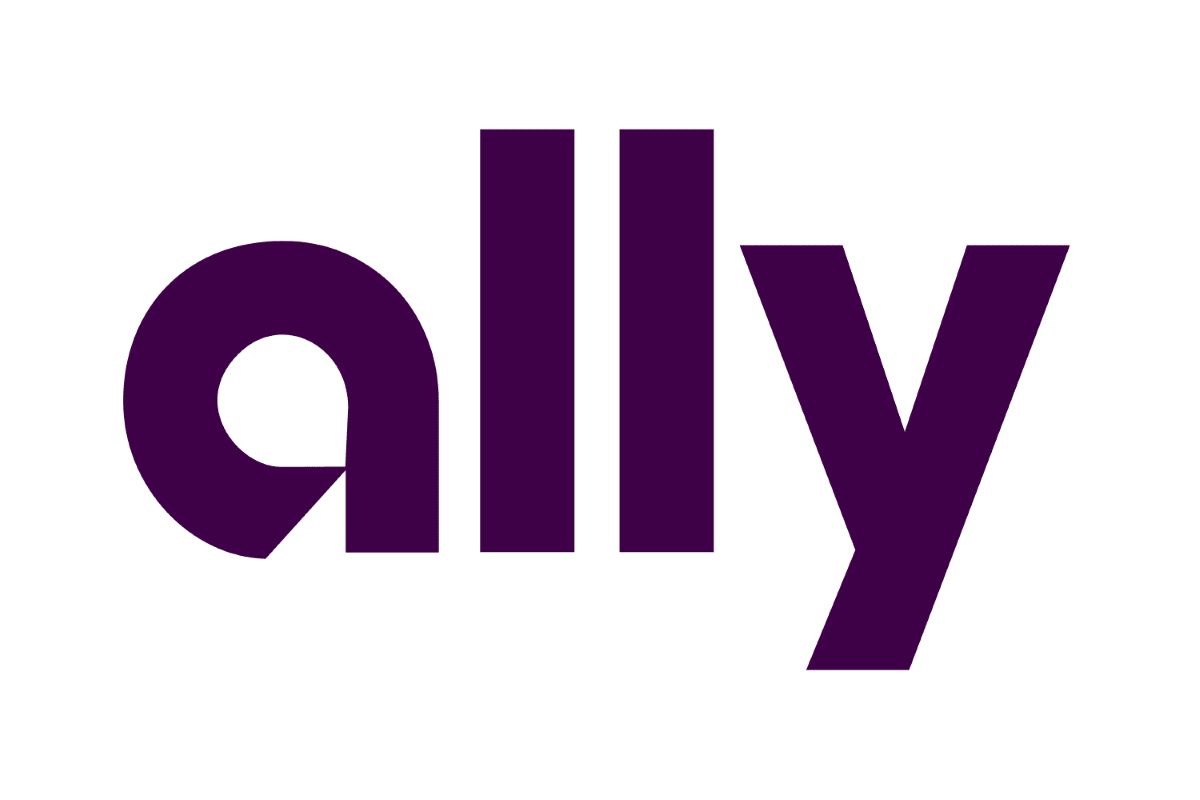Home>Finance>What Credit Score Do You Need For Ally Financial


Finance
What Credit Score Do You Need For Ally Financial
Modified: February 21, 2024
Discover the credit score requirements for financing with Ally Financial. Learn what credit score range is needed to secure a loan through Ally and take control of your financial future.
(Many of the links in this article redirect to a specific reviewed product. Your purchase of these products through affiliate links helps to generate commission for LiveWell, at no extra cost. Learn more)
Table of Contents
Introduction
When it comes to financial matters, having a good credit score can make all the difference. It can determine whether you get approved for a loan, secure a mortgage, or even qualify for a credit card. One institution that understands the importance of credit scores is Ally Financial. In this article, we will explore what credit score you need to have in order to be considered by Ally Financial.
But before we get into the specifics of Ally Financial’s credit score requirements, let’s take a moment to understand what a credit score is and why it holds such significance in the world of finance.
Your credit score is a numerical representation of your creditworthiness, providing lenders with an indication of your ability to repay debts and manage your finances responsibly. It takes into account various factors, including your payment history, amount of debt, length of credit history, and types of credit used.
The range of credit scores typically falls between 300 and 850, with higher scores indicating better creditworthiness. A higher credit score demonstrates that you are a lower risk borrower, making it more likely for lenders to extend credit to you and at more favorable interest rates. On the other hand, a lower credit score may result in limited access to credit or higher interest rates.
Now let’s delve into Ally Financial, a reputable financial institution known for its diverse range of banking, auto financing, and investment services.
Understanding Credit Scores
Before we dive into Ally Financial’s credit score requirements, it’s crucial to have a solid understanding of how credit scores are calculated and what factors influence them.
As previously mentioned, credit scores are numerical representations of an individual’s creditworthiness. They are generated by credit reporting agencies, such as Experian, Equifax, and TransUnion, who analyze your credit history and compile a comprehensive credit report.
Several key factors contribute to the calculation of your credit score:
- Payment History: This is the most crucial factor. It reflects your track record of making on-time payments on your loans, credit cards, and other debts. Consistently paying your bills on time has a positive impact on your credit score.
- Amounts Owed: This factor takes into account your overall debt, including credit card balances, loans, and mortgages. Lenders prefer to see a lower credit utilization ratio, which is the percentage of available credit you are using. Keeping your balances low can have a positive impact on your credit score.
- Length of Credit History: The length of time you have had credit accounts affects your credit score. A longer credit history demonstrates stability and helps lenders assess your creditworthiness.
- Types of Credit Used: The mix of credit accounts you have, such as credit cards, mortgages, and car loans, can impact your credit score. Lenders like to see a diverse credit portfolio, showing that you can manage different types of credit responsibly.
- New Credit Applications: Opening multiple new credit accounts within a short period of time can negatively affect your credit score. Lenders may view this as a sign of financial instability or desperation.
It’s important to note that different credit scoring models, such as FICO and VantageScore, use slightly different algorithms to calculate credit scores. However, the underlying principles remain the same.
Now that we have a better understanding of credit scores, let’s explore why they are so important in the realm of personal finance.
Importance of Credit Scores
Credit scores play a significant role in many aspects of your financial life. Whether you are looking to secure a loan, rent an apartment, or get a competitive interest rate on a credit card, having a good credit score is essential. Here are a few reasons why credit scores are so important:
1. Loan Approval: When applying for a loan, such as a mortgage or an auto loan, lenders assess your creditworthiness through your credit score. A higher credit score increases the likelihood of loan approval and may even qualify you for more favorable terms, such as a lower interest rate. A low credit score, on the other hand, can result in loan rejections or high-interest rates, making it harder to achieve your financial goals.
2. Rental Applications: Landlords and property management companies often screen potential tenants by checking their credit scores. A good credit score can give you a competitive edge and make it easier to secure a rental property. On the other hand, a low credit score may make it challenging to find suitable housing or result in higher security deposits.
3. Credit Card Approval: Credit card companies evaluate credit scores to determine whether to issue a card and what credit limit to assign. A higher credit score can lead to a wider selection of credit card options with attractive rewards and benefits. Conversely, a low credit score may lead to limited credit card choices or require you to start with a secured credit card.
4. Interest Rates: Credit scores also have a significant influence on the interest rates you receive on loans and credit cards. Lenders view borrowers with higher credit scores as less risky and are therefore willing to offer better terms. With a good credit score, you can save a substantial amount of money over time by securing lower interest rates, reducing monthly payments, and paying less in interest charges.
5. Future Opportunities: A good credit score sets the stage for future financial opportunities. As your credit history grows, a positive credit score paves the way for higher credit limits, better loan terms, and increased financial flexibility. It can ultimately make it easier to achieve your long-term financial goals, such as buying a home, starting a business, or pursuing higher education.
Now that we understand the importance of credit scores, let’s take a closer look at Ally Financial and its services.
Ally Financial Overview
Ally Financial, formerly known as GMAC (General Motors Acceptance Corporation), is a leading digital financial services company that offers a wide range of banking, auto financing, and investment solutions. With a focus on providing innovative and customer-centric services, Ally Financial has become a trusted name in the financial industry.
Established in 1919, Ally Financial has evolved and adapted to the changing needs of consumers. Today, it provides comprehensive financial products and services to millions of customers across the United States, including online banking, auto financing, home loans, and investment services.
One of the key advantages of banking with Ally Financial is their commitment to providing a seamless digital experience. Customers can access their accounts, make transactions, and manage their finances online or through the Ally mobile app, offering convenience and flexibility.
Ally Bank, the banking subsidiary of Ally Financial, offers various banking products, including checking accounts, savings accounts, certificates of deposit (CDs), and money market accounts. Their online banking platform offers competitive interest rates, low fees, and easy-to-use tools to help customers effectively manage their money.
In addition to traditional banking services, Ally Financial’s auto financing division provides financing and leasing options for both new and used vehicles. They work with dealerships to offer competitive rates and terms, making it easier for customers to finance their dream car.
Moreover, Ally Financial offers investment products and services through their subsidiary, Ally Invest. Customers have access to a wide range of investment options, including stocks, exchange-traded funds (ETFs), mutual funds, options, and more. They provide educational resources and user-friendly platforms to help investors make informed and confident investment decisions.
Ally Financial is known for its strong customer service and commitment to transparency. They prioritize building trust and maintaining long-term relationships with their customers. Their dedication to providing outstanding service has earned them numerous awards and recognition, reinforcing their position as a leader in the financial industry.
Now that we have a better understanding of Ally Financial and its comprehensive range of financial services, let’s explore the credit score requirements to access their products and services.
Minimum Credit Score Requirement
When it comes to borrowing money or accessing financial services, Ally Financial has specific credit score requirements in place. While the specific credit score cutoff may vary depending on the product or service you are seeking, Ally Financial generally prefers to work with borrowers who have a good to excellent credit score.
For example, when it comes to auto financing, Ally Financial typically looks for borrowers with a credit score of 620 or higher. However, it’s important to note that credit score requirements can vary based on factors such as the loan amount, the length of the loan term, and the borrower’s overall financial profile.
In the case of Ally Bank’s online banking and savings accounts, there is generally no specific minimum credit score requirement since these accounts are not credit-dependent. Instead, Ally Bank conducts a Soft Credit Inquiry, which does not impact your credit score, to verify your identity. This allows individuals with lower credit scores or limited credit history to access banking services with Ally Bank.
While having a credit score of 620 or higher is a typical requirement for auto financing, it is important to remember that it’s not the only factor that determines loan approval. Lenders take other aspects of your financial profile into consideration, including your income, employment history, and debt-to-income ratio.
If you’re concerned about meeting the minimum credit score requirements, don’t worry. There are steps you can take to improve your credit score and enhance your chances of qualifying for financing or other financial services with Ally Financial or other institutions.
Now, let’s explore how your credit score impacts loan approval and the steps you can take to improve your creditworthiness.
Credit Score Impact on Loan Approval
Your credit score plays a crucial role in the loan approval process. Lenders, including Ally Financial, use credit scores as a key factor in assessing your creditworthiness and determining whether to approve your loan application.
Having a good credit score increases your chances of loan approval and may even lead to more favorable terms, such as a lower interest rate or higher loan amount. On the other hand, a low credit score can make it more challenging to get approved for a loan and may result in less favorable terms.
Here’s how your credit score impacts loan approval:
- Eligibility: Lenders typically set minimum credit score requirements to determine who is eligible for a loan. If your credit score falls below their threshold, your loan application may be rejected outright. It’s essential to meet or exceed the minimum credit score requirement to have a higher chance of loan approval with Ally Financial or any other lender.
- Interest Rates: Lenders use credit scores to assess the risk associated with borrowing money to an individual. A higher credit score indicates a lower risk borrower, which translates to lower interest rates on loans. Conversely, if you have a lower credit score, lenders may view you as a higher risk borrower and charge you a higher interest rate to offset that risk.
- Loan Amount: Your credit score can also impact the loan amount you are eligible for. Lenders may be more willing to lend larger amounts to individuals with higher credit scores, as they are perceived as more financially responsible. If you have a lower credit score, you may have a lower borrowing limit or may need to provide additional collateral or a co-signer to secure the loan.
- Loan Terms: In addition to interest rates and loan amounts, your credit score can influence other loan terms, such as the length of the loan repayment period. Higher credit scores often result in more favorable loan terms, including shorter repayment periods and more flexible options.
It’s important to note that credit scores are not the only factor considered during the loan approval process. Lenders also evaluate your income, employment history, debt-to-income ratio, and other financial factors. However, your credit score holds significant weight in the decision-making process.
Now that we understand how credit scores impact loan approval, let’s explore some steps you can take to improve your credit score and enhance your financial standing.
Improving Your Credit Score
If you have a lower credit score and want to improve it to increase your chances of loan approval and access better terms from lenders like Ally Financial, there are several steps you can take. While improving your credit score takes time and effort, the long-term benefits are well worth it. Here are some strategies to help you improve your credit score:
- Pay Your Bills on Time: Your payment history has a significant impact on your credit score. Make sure to pay all your bills, including credit cards, loans, and utilities, on time. Setting up automated payments or reminders can help you stay on track.
- Reduce Credit Card Balances: High credit card balances can negatively impact your credit score. Aim to keep your credit card balances low and maintain a low credit utilization ratio, which is the percentage of your available credit that you are using. Paying down debt can have a positive impact on your credit score.
- Avoid Opening Too Many New Accounts: Opening multiple new credit accounts within a short period of time can lower your credit score. Each new credit application typically results in a hard inquiry, which can have a temporary negative impact on your credit score.
- Monitor Your Credit Report: Regularly reviewing your credit report is essential to identify any errors or discrepancies that could be negatively affecting your credit score. Dispute any inaccuracies and work with the credit reporting agencies to have them corrected.
- Build a Positive Credit History: If you have a limited credit history, consider opening a secured credit card or becoming an authorized user on a family member’s credit card. Making timely payments and demonstrating responsible credit usage can help you build and improve your credit score over time.
- Manage Your Debt Wisely: Properly managing your overall debt is crucial for a good credit score. Avoid taking on excessive debt and focus on paying down high-interest debts. Consider creating a budget and developing a debt repayment plan.
- Be Patient and Consistent: Improving your credit score doesn’t happen overnight. It requires patience, consistency, and responsible financial habits. Keep making on-time payments, reducing debt, and practicing good credit habits, and your credit score will gradually improve over time.
Remember, everyone’s credit journey is unique, and it may take time to see significant improvements in your credit score. However, by following these strategies, you can gradually improve your creditworthiness and gain access to better financial opportunities.
While improving your credit score is important, it’s also essential to explore alternative financing options if you need access to credit and have difficulty meeting the credit score requirements of traditional lenders like Ally Financial.
Next, let’s take a look at some alternative financing options that may be available to you.
Alternative Financing Options
If you’re in need of financing but have a lower credit score that may not meet the requirements of banks or traditional lenders like Ally Financial, don’t worry. Several alternative financing options are available that can help you access the funds you need. Here are a few alternatives to consider:
- Credit Unions: Credit unions are not-for-profit financial cooperatives that often offer more flexible lending criteria compared to traditional banks. They may be more willing to work with individuals who have lower credit scores and offer competitive interest rates on loans.
- Online Lenders: Online lending platforms have emerged as a popular alternative to traditional banks. These platforms connect borrowers directly with investors or lending institutions and often have more lenient credit requirements. However, it’s important to carefully research and compare online lenders to ensure they are reputable and offer fair loan terms.
- Peer-to-Peer (P2P) Lending: P2P lending platforms connect borrowers with individual investors who are willing to lend money. These platforms evaluate borrowers based on various factors, not just credit scores, which can make them more accessible to individuals with lower credit scores.
- Secured Loans: Secured loans require collateral, such as a vehicle or property, to secure the loan. This reduces the lender’s risk, making it easier to get approved even with a lower credit score. However, it’s important to consider the risk of losing the collateral if you’re unable to repay the loan.
- Family or Friends: If possible, consider reaching out to family or friends who may be willing to provide a personal loan. This informal arrangement can be more flexible and forgiving in terms of credit score requirements. However, it’s crucial to establish clear repayment terms and maintain open communication to avoid straining relationships.
While these alternative financing options can provide a way to access funds with lower credit scores, it is important to carefully consider the terms and risks involved. Be sure to do your research, compare options, and only borrow what you can comfortably repay.
Additionally, during this time, it can be beneficial to focus on improving your credit score by following the tips mentioned earlier. This will help expand your financial options and potentially qualify for more favorable loan terms in the future.
Now let’s conclude our discussion.
Conclusion
Credit scores have a significant impact on your financial journey, and understanding their importance is crucial. When it comes to Ally Financial, having a good credit score is generally preferred, especially for loan approvals and favorable terms. While their specific credit score requirements may vary depending on the product or service you are seeking, it’s always wise to aim for a good to excellent credit score.
If your credit score falls below the desired threshold, don’t worry. There are steps you can take to improve it over time, such as paying bills on time, reducing credit card balances, and maintaining a positive credit history. By doing so, you enhance your chances of qualifying for loans, securing competitive interest rates, and accessing financial services with Ally Financial or other lenders.
However, in situations where your credit score may not meet the requirements of traditional lenders, alternative financing options can come to the rescue. Credit unions, online lenders, peer-to-peer lending platforms, secured loans, and personal loans from family or friends are viable alternatives worth exploring.
Remember, improving your credit score and accessing alternative financing options require patience, responsible financial habits, and thorough research. Take the time to understand the terms, rates, and risks associated with each option to make informed decisions aligned with your financial goals.
In conclusion, your credit score matters, and it’s worth investing time and effort to improve it. Whether you’re aiming to secure a loan, rent an apartment, or get a competitive interest rate on a credit card, having a good credit score opens doors to numerous financial opportunities. So, take control of your credit score, and pave the way towards a brighter financial future.














